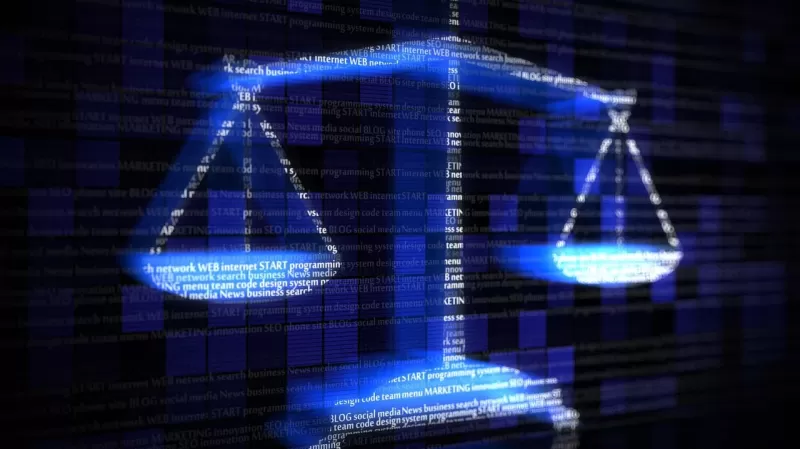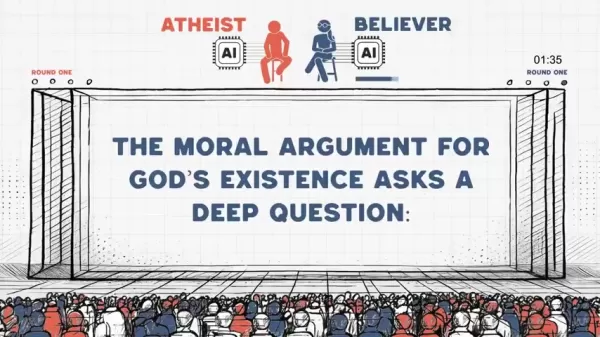OpenAI Launches ChatGPT Gov, Tailored for Government Use - Key Details Revealed

ChatGPT has proven to be a powerful tool in the workplace, enhancing productivity by making documents easily searchable, automating complex tasks, and aiding in writing and coding. Given its capabilities, it's no surprise that the US government could benefit significantly from such technology. OpenAI shares this view and has taken steps to cater specifically to government needs.
ChatGPT Gov
On Tuesday, OpenAI introduced ChatGPT Gov, a specialized version of ChatGPT designed to meet the stringent requirements of federal agencies. This version combines ChatGPT's advanced functionalities with strict adherence to government security and privacy standards.
📢 Today we're announcing ChatGPT Gov, a version of ChatGPT that government agencies can deploy in their own MS Azure commercial or government cloud environment.
Enabling the public sector, especially the U.S. Federal government, to leverage ChatGPT is critical to maintaining…
— Kevin Weil 🇺🇸 (@kevinweil) January 28, 2025
In the announcement, OpenAI highlighted the "enormous potential" of their AI tools in helping the public sector tackle complex challenges like public health improvements and national security enhancements, all aimed at serving the national interest and public good.
ChatGPT Gov offers features similar to those in ChatGPT Enterprise, including collaboration tools within government workspaces, the ability to upload text and image files, access to GPT-4o, the creation of custom GPTs, and an administrative console for CIOs and IT teams to manage usage.
Also: What to know about DeepSeek AI, from cost claims to data privacy
OpenAI noted that over 90,000 users from more than 3,500 US federal, state, and local government agencies have already utilized ChatGPT, sending over 18 million messages.
Access
To ensure maximum security and control, government agencies can deploy ChatGPT Gov within their environments using Microsoft Azure's OpenAI Service, available on both the Microsoft Azure commercial cloud and Azure Government. This setup allows agencies to manage their security, privacy, and compliance requirements more effectively, such as stringent cybersecurity frameworks like IL5, CJIS, ITAR, and FedRAMP High.
Additionally, ChatGPT Gov simplifies the process of getting internal authorization for processing non-public sensitive data with OpenAI's models. Usage of ChatGPT Gov will be governed by OpenAI's usage policies, which prohibit harmful uses and include safeguards. While specifics on rollout timelines and pricing were not disclosed, interested parties are encouraged to reach out to OpenAI's sales team.
Privacy Concerns
The integration of OpenAI's technology into government functions naturally raises concerns about data privacy, as highlighted in comments on Kevin Weil's X post announcing the service.
X user @tanvitabs expressed worry: "It's concerning that official public data is being given to AI without explicit permission from the individuals involved. This raises significant privacy issues as you move towards integrating AI in government operations."
Also: I put GitHub Copilot's AI to the test - and it just might be terrible at writing code
In response, Weil emphasized that ChatGPT Gov is self-hosted in the user's accredited cloud environment, and the Azure OpenAI API will include features like Zero Data Retention (ZDR) in classified settings to address these concerns.
Related article
 AI Evaluation Requires Real-World Performance Review Beyond Benchmarks
If you've been tracking AI advancements, you've undoubtedly encountered headlines announcing record-breaking benchmark performances. From computer vision tasks to medical diagnostics, these standardized tests have long served as the definitive measur
AI Evaluation Requires Real-World Performance Review Beyond Benchmarks
If you've been tracking AI advancements, you've undoubtedly encountered headlines announcing record-breaking benchmark performances. From computer vision tasks to medical diagnostics, these standardized tests have long served as the definitive measur
 Atheist and Believer AI Clash Over Moral Argument in Heated Debate
When artificial intelligence systems with diametrically opposed philosophical frameworks engage in ethical debate, what insights emerge? This groundbreaking experiment staged an intellectual confrontation between an Atheist AI and Believer AI, focusi
Atheist and Believer AI Clash Over Moral Argument in Heated Debate
When artificial intelligence systems with diametrically opposed philosophical frameworks engage in ethical debate, what insights emerge? This groundbreaking experiment staged an intellectual confrontation between an Atheist AI and Believer AI, focusi
 OpenAI Upgrades ChatGPT Pro to o3, Boosting Value of $200 Monthly Subscription
This week witnessed significant AI developments from tech giants including Microsoft, Google, and Anthropic. OpenAI concludes the flurry of announcements with its own groundbreaking updates - extending beyond its high-profile $6.5 billion acquisition
Comments (61)
0/200
OpenAI Upgrades ChatGPT Pro to o3, Boosting Value of $200 Monthly Subscription
This week witnessed significant AI developments from tech giants including Microsoft, Google, and Anthropic. OpenAI concludes the flurry of announcements with its own groundbreaking updates - extending beyond its high-profile $6.5 billion acquisition
Comments (61)
0/200
![SamuelJackson]() SamuelJackson
SamuelJackson
 August 23, 2025 at 3:01:19 AM EDT
August 23, 2025 at 3:01:19 AM EDT
Wow, ChatGPT for the government? That's a game-changer! I bet it'll speed up bureaucracy, but I'm curious if it'll handle sensitive data safely. 🤔


 0
0
![HaroldPerez]() HaroldPerez
HaroldPerez
 August 23, 2025 at 1:01:15 AM EDT
August 23, 2025 at 1:01:15 AM EDT
ChatGPT for government use? That's wild! I bet it'll streamline a ton of paperwork, but I'm curious how they'll handle security with all that sensitive data. 🤔 Anyone else wondering about the privacy angle?


 0
0
![DouglasScott]() DouglasScott
DouglasScott
 August 14, 2025 at 5:00:59 AM EDT
August 14, 2025 at 5:00:59 AM EDT
ChatGPT for gov use? Wild! Bet it’ll streamline tons of paperwork, but hope they’ve got tight security to keep those bots from spilling state secrets. 🕵️♂️


 0
0
![NicholasHernández]() NicholasHernández
NicholasHernández
 August 9, 2025 at 7:00:59 AM EDT
August 9, 2025 at 7:00:59 AM EDT
ChatGPT for gov sounds cool, but I’m wondering how they’ll handle security. AI digging through sensitive docs? Hope they’ve got that locked down tight! 😎


 0
0
![JustinLewis]() JustinLewis
JustinLewis
 July 23, 2025 at 12:59:29 AM EDT
July 23, 2025 at 12:59:29 AM EDT
ChatGPT for government use? Sounds like a game-changer for bureaucracy! Imagine faster document searches and automated reports. But I wonder, how secure is this for sensitive data? 🤔


 0
0
![JackLewis]() JackLewis
JackLewis
 July 21, 2025 at 9:25:03 PM EDT
July 21, 2025 at 9:25:03 PM EDT
ChatGPT for government use? That's a game-changer! Imagine bureaucrats zipping through paperwork or coding secure systems with this. But, gotta wonder, how do they keep sensitive data safe with all that AI power? 🤔 Exciting times!


 0
0

ChatGPT has proven to be a powerful tool in the workplace, enhancing productivity by making documents easily searchable, automating complex tasks, and aiding in writing and coding. Given its capabilities, it's no surprise that the US government could benefit significantly from such technology. OpenAI shares this view and has taken steps to cater specifically to government needs.
ChatGPT Gov
On Tuesday, OpenAI introduced ChatGPT Gov, a specialized version of ChatGPT designed to meet the stringent requirements of federal agencies. This version combines ChatGPT's advanced functionalities with strict adherence to government security and privacy standards.
📢 Today we're announcing ChatGPT Gov, a version of ChatGPT that government agencies can deploy in their own MS Azure commercial or government cloud environment.
Enabling the public sector, especially the U.S. Federal government, to leverage ChatGPT is critical to maintaining…— Kevin Weil 🇺🇸 (@kevinweil) January 28, 2025
In the announcement, OpenAI highlighted the "enormous potential" of their AI tools in helping the public sector tackle complex challenges like public health improvements and national security enhancements, all aimed at serving the national interest and public good.
ChatGPT Gov offers features similar to those in ChatGPT Enterprise, including collaboration tools within government workspaces, the ability to upload text and image files, access to GPT-4o, the creation of custom GPTs, and an administrative console for CIOs and IT teams to manage usage.
Also: What to know about DeepSeek AI, from cost claims to data privacy
OpenAI noted that over 90,000 users from more than 3,500 US federal, state, and local government agencies have already utilized ChatGPT, sending over 18 million messages.
Access
To ensure maximum security and control, government agencies can deploy ChatGPT Gov within their environments using Microsoft Azure's OpenAI Service, available on both the Microsoft Azure commercial cloud and Azure Government. This setup allows agencies to manage their security, privacy, and compliance requirements more effectively, such as stringent cybersecurity frameworks like IL5, CJIS, ITAR, and FedRAMP High.
Additionally, ChatGPT Gov simplifies the process of getting internal authorization for processing non-public sensitive data with OpenAI's models. Usage of ChatGPT Gov will be governed by OpenAI's usage policies, which prohibit harmful uses and include safeguards. While specifics on rollout timelines and pricing were not disclosed, interested parties are encouraged to reach out to OpenAI's sales team.
Privacy Concerns
The integration of OpenAI's technology into government functions naturally raises concerns about data privacy, as highlighted in comments on Kevin Weil's X post announcing the service.
X user @tanvitabs expressed worry: "It's concerning that official public data is being given to AI without explicit permission from the individuals involved. This raises significant privacy issues as you move towards integrating AI in government operations."
Also: I put GitHub Copilot's AI to the test - and it just might be terrible at writing code
In response, Weil emphasized that ChatGPT Gov is self-hosted in the user's accredited cloud environment, and the Azure OpenAI API will include features like Zero Data Retention (ZDR) in classified settings to address these concerns.
 Atheist and Believer AI Clash Over Moral Argument in Heated Debate
When artificial intelligence systems with diametrically opposed philosophical frameworks engage in ethical debate, what insights emerge? This groundbreaking experiment staged an intellectual confrontation between an Atheist AI and Believer AI, focusi
Atheist and Believer AI Clash Over Moral Argument in Heated Debate
When artificial intelligence systems with diametrically opposed philosophical frameworks engage in ethical debate, what insights emerge? This groundbreaking experiment staged an intellectual confrontation between an Atheist AI and Believer AI, focusi
 OpenAI Upgrades ChatGPT Pro to o3, Boosting Value of $200 Monthly Subscription
This week witnessed significant AI developments from tech giants including Microsoft, Google, and Anthropic. OpenAI concludes the flurry of announcements with its own groundbreaking updates - extending beyond its high-profile $6.5 billion acquisition
OpenAI Upgrades ChatGPT Pro to o3, Boosting Value of $200 Monthly Subscription
This week witnessed significant AI developments from tech giants including Microsoft, Google, and Anthropic. OpenAI concludes the flurry of announcements with its own groundbreaking updates - extending beyond its high-profile $6.5 billion acquisition
 August 23, 2025 at 3:01:19 AM EDT
August 23, 2025 at 3:01:19 AM EDT
Wow, ChatGPT for the government? That's a game-changer! I bet it'll speed up bureaucracy, but I'm curious if it'll handle sensitive data safely. 🤔


 0
0
 August 23, 2025 at 1:01:15 AM EDT
August 23, 2025 at 1:01:15 AM EDT
ChatGPT for government use? That's wild! I bet it'll streamline a ton of paperwork, but I'm curious how they'll handle security with all that sensitive data. 🤔 Anyone else wondering about the privacy angle?


 0
0
 August 14, 2025 at 5:00:59 AM EDT
August 14, 2025 at 5:00:59 AM EDT
ChatGPT for gov use? Wild! Bet it’ll streamline tons of paperwork, but hope they’ve got tight security to keep those bots from spilling state secrets. 🕵️♂️


 0
0
 August 9, 2025 at 7:00:59 AM EDT
August 9, 2025 at 7:00:59 AM EDT
ChatGPT for gov sounds cool, but I’m wondering how they’ll handle security. AI digging through sensitive docs? Hope they’ve got that locked down tight! 😎


 0
0
 July 23, 2025 at 12:59:29 AM EDT
July 23, 2025 at 12:59:29 AM EDT
ChatGPT for government use? Sounds like a game-changer for bureaucracy! Imagine faster document searches and automated reports. But I wonder, how secure is this for sensitive data? 🤔


 0
0
 July 21, 2025 at 9:25:03 PM EDT
July 21, 2025 at 9:25:03 PM EDT
ChatGPT for government use? That's a game-changer! Imagine bureaucrats zipping through paperwork or coding secure systems with this. But, gotta wonder, how do they keep sensitive data safe with all that AI power? 🤔 Exciting times!


 0
0





























